The secret history of underdog game engine RPG Maker and how it got its bad reputation
Should you use it to make your own RPG?
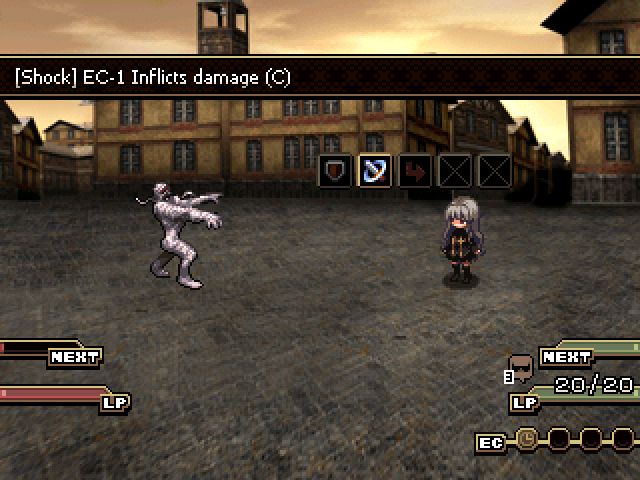
RPG Maker has been used to make games as diverse as weird sidescroller LISA, heartbreaker To the Moon, and plenty of other games worth recommending. It gives users a basic scripting language, a map editor, and a combat editor with which they can create whatever they want. And yet, if you look into using it, you're bound to find people saying RPG Maker is a bad engine.
The truth is more complicated, and can only be understood by knowing the full history of RPG Maker. It's a 17-year odyssey, featuring dopey teenagers, mangled translations, cease-and-desist letters, and every known form of piracy. None of this was ever supposed to happen.
RPG Maker 95, 2000, and 2003
The RPG Maker series was created by Enterbrain, a division of Japanese company ASCII Corporation that initially had no interest in translating its product for a Western audience. But in 2000 a Russian student nicknamed 'Don Miguel' released a completely illegal and somewhat wonky English translation of RPG Maker 95/2000. It spread like wildfire.
RPG Maker was easy to use, and promised the opportunity to recreate, without coding, something akin to the glorious JRPGs of the SNES era. Flocks of teenagers downloaded the engine, dreaming of making the next Final Fantasy.
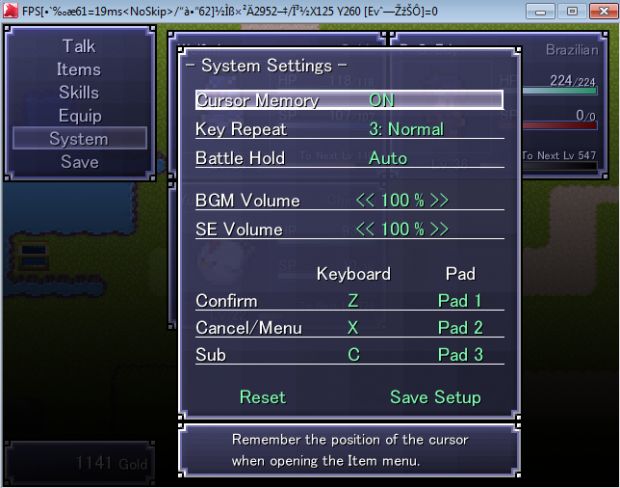
Being teenagers, many of those first users weren't skilled artists. They resorted to "ripping," taking graphical assets from commercial games and assembling them into spritesheets the engine could digest. They mixed and matched art from games like Chrono Trigger, Secret of Mana, and Suikoden to create their own fantasy worlds.
It was completely illegal, of course, but the Internet at the time was still a wild, wild place, and at first nobody cared. Enterbrain eventually issued a cease-and-desist letter to Don Miguel, but it was too late: his creation was out of control. As he closed his own website dozens of others popped up. Further legal actions never managed to eradicate the problem. RPG Maker in English was here to stay.
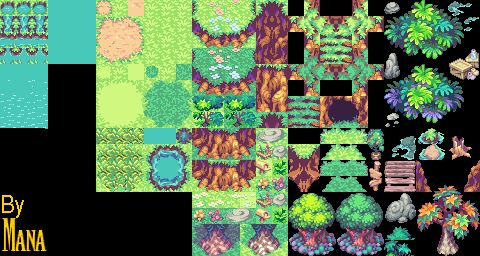
RPG Maker XP
In 2004 a new version of RPG Maker was released in Japan—and promptly cracked, translated, and released to the Western market by Don Miguel’s successor, 'RPG Advocate.'
The biggest gaming news, reviews and hardware deals
Keep up to date with the most important stories and the best deals, as picked by the PC Gamer team.
RPG Maker XP featured a higher screen resolution, a shiny new map system, and most importantly, a scripting system. By tinkering with the base library, all written in Ruby, it was possible to change core functions or add new features to the games. If the library had documentation, though, it was never translated.
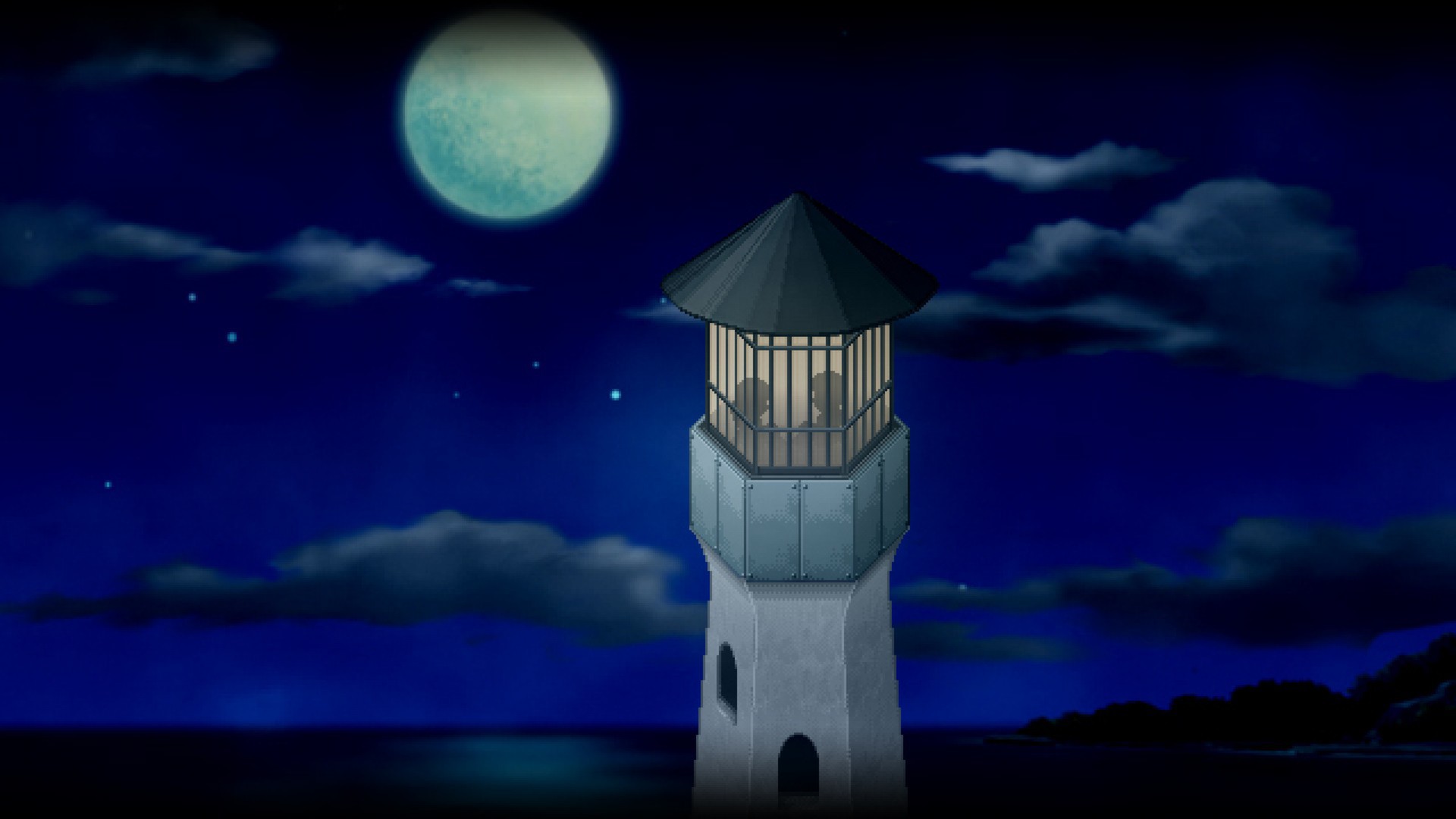
The community faced a schism. Those who already had programming experience grasped the system; most others were left in the dark. But the good part of having an engine with so many pre-scripted features is that the code you write for your own game will probably work on someone else’s project.
"Scripters" began to release their work to the public: adding a fancy new menu to your game became only a matter of copy-pasting a few lines of code. New users joined forums looking for those assets and scripts, but remained for the company. Communities grew.
In 2005, the impossible happened: RPG Maker found an English publisher in Protexis. However, the people who already owned a pirated copy were unwilling to support the official version. After waiting for so long for an English release, many ignored Protexis's work.
RPG Maker VX and VX Ace
Two years later, Protexis localized the newest version of the engine, RPG Maker VX. Unfortunately, it wasn’t very good. With a reduced resolution and a simplified map system it was seen by many as a step back. A newer version called RPG Maker VX Ace addressed those complaints, and Degica stepped in as the new publisher.
Degica not only translated the engine, but made an effort to build a community around their product. RPG Maker finally had official forums, a support network, and someone willing to listen to the community and relay their feedback to the Japanese developers. Most importantly, Degica put the entire RPG Maker series on Steam, greatly increasing the engine’s popularity. But with new perks also came new rules.
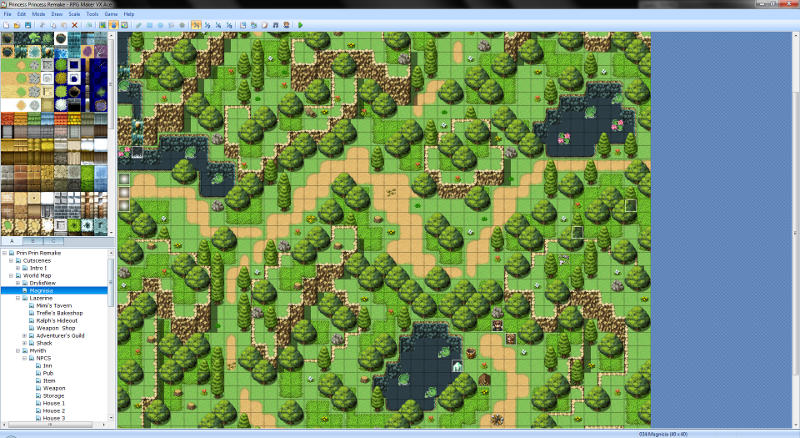
No piracy, no ripping, no more fan games that used copyrighted material. The days of glory and plunder were over. It was time for the community to grow up—but a large part of the community was still not great at creating original art.
Degica published more art packs in the same style as their standard assets (also called Run Time Packages, or RTPs), and encouraged the community to make new assets using the same art style. The idea was to encourage the use of RTPs, building a free large library of tiles and characters available to everyone. It was a noble intent, but also produced an unfortunate side-effect.
Steam Greenlight and experimental games
The release of RPG Maker VX Ace coincided with the birth of Steam Greenlight. RPG Maker users started to consider themselves real game developers, and realized they could actually try to sell their games. The result? An explosion of RPG Maker games on Steam Greenlight, often made by teenagers with big dreams but limited skills. And all those games looked the same.
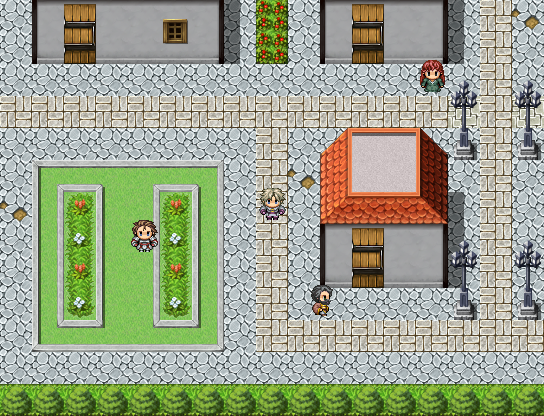
Players began to associate RPG Maker's RTPs with mediocre, "lazy" games. The engine got a bad reputation. In a 2016 Reddit thread about why people had begun to hate games made with RPG Maker a community manager who worked for Degica said, "I really wish people who weren't ready for the big time would stop submitting to greenlight. It would make my job easier. Because the perception of RM is already bad enough without people trying to throw their 10 minute effort game on greenlight."
On forums and in Steam user reviews the same comments about RPG Maker games recur over and over. They're "low effort and low quality," "look more or less identical," use the same "stock resources." It's enough to put you off using the engine entirely.
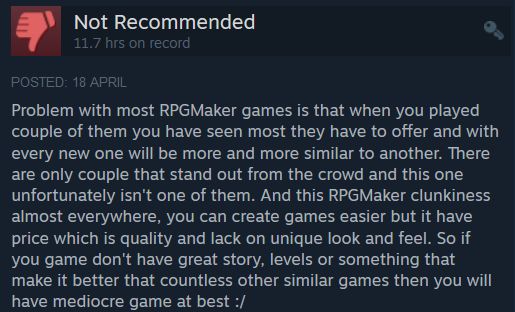
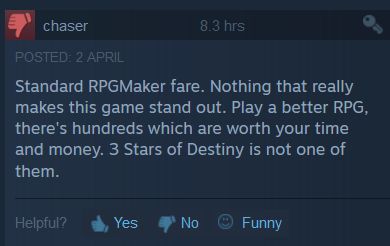



But outside of Steam, experimental RPG Maker games thrived. Artists with cool ideas but basic programming skills had found the perfect tool for them. Not interested in selling their products, they used RPG Maker to make weird games that reached cult status even outside the community. Japanese horror games like Yume Nikki and Corpse Party kickstarted an entire "horror RPG Maker games starring cute girls" movement. Other notable games include Space Funeral, Gingiva, Ib, Ao Oni, Oneshot, and OFF.
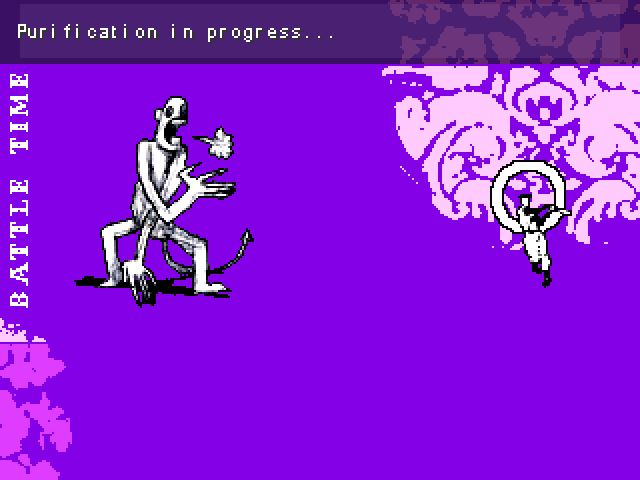
RPG Maker MV
In 2015 Degica published RPG Maker MV. The engine looked similar to the older versions, but had been completely rewritten in Javascript. New features included proper porting options, a debug console, and touch and mouse support.
After 20 years, RPG Maker was finally starting to resemble a proper game engine. It was a huge step forward. Though troubled by some serious bugs at release and a lack of documentation, it works well nowadays. In some corners of the internet that's never enough to repair a damaged reputation, however.

Comparing their Steam forums, the older engine has more discussion threads in every category except one—Tech Support, where the newer version has overtaken it handily. Two years after its release opinions are still divided. Some say the choice between MV and VX Ace comes down to which programming language you prefer, Ruby or Javascript, while for others it's about MV's ability to port to mobile versus the older engine's wealth of available assets. It's not a conversation that's likely to end any time soon.
The future of RPG Maker
While RPG Maker’s community is pushing for more professional features, the developers themselves seem to consider the engine more of a toy than a proper engine, as the various console incarnations prove. We have to remember that RPG Maker is a Japanese engine at heart, and indie development is seen differently there.
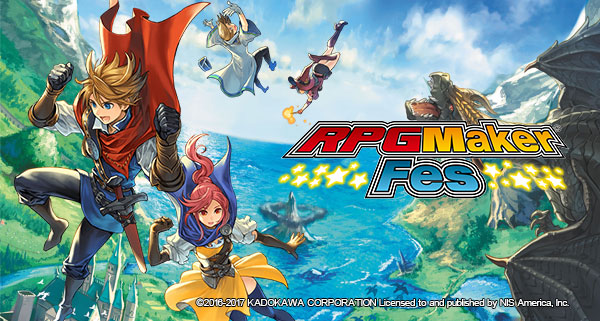
Strangely enough, RPG Maker 2003 remains extremely popular, especially among Japanese developers. The limitations mimic those of a retro console, and help solo devs prevent overscoping their projects. The engine is still well supported, and even received some Steam updates this year. Vgperson’s translations website is the best resource about those new games made with this 14-year-old engine.
Should you use RPG Maker?
At this point you may be asking yourself, "Should I try RPG Maker after all? Should I give this much-maligned engine a chance?" If you're looking to make a professional game and actually sell it, probably not. It's still not a terribly good engine, and lacks many features its more professional counterparts like Unity and even GameMaker have. However, I think RPG Maker could be the perfect choice in some very particular cases.
- Returning devs: Maybe you fiddled with RPG Maker when you were a teen. Maybe you want to make games again, but don’t really know where to start. Rejoice! The engine works exactly like you remember, and the community is incredibly active and helpful. A small RPG Maker project can help you flex your muscles before tackling a more complex engine like Unity.
- Artisans: By "artisans" I mean a very particular kind of game developers who like to focus on art and writing, and are making a game just because it’s the best medium to express the particular story they have in mind. They usually don’t have strong programming skills, nor do they care to—they just want to have characters walking around, some dialogue, and maybe some minigames or a battle here and there. If you fit this description, RPG Maker can take care of all your needs.
- Children: Historically RPG Maker has done surprisingly well with the young. Give it to some bright kids, and they might well love it. RPG Maker's eventing system is much more complex than Game Maker’s drag-and-drop commands, and can teach them a great deal about programming logic while they have fun.
And always remember: an engine is just an instrument. Sometimes a 'bad' engine can be exactly the right one for you.
Special thanks to community manager Archeia for advice and additional information.

